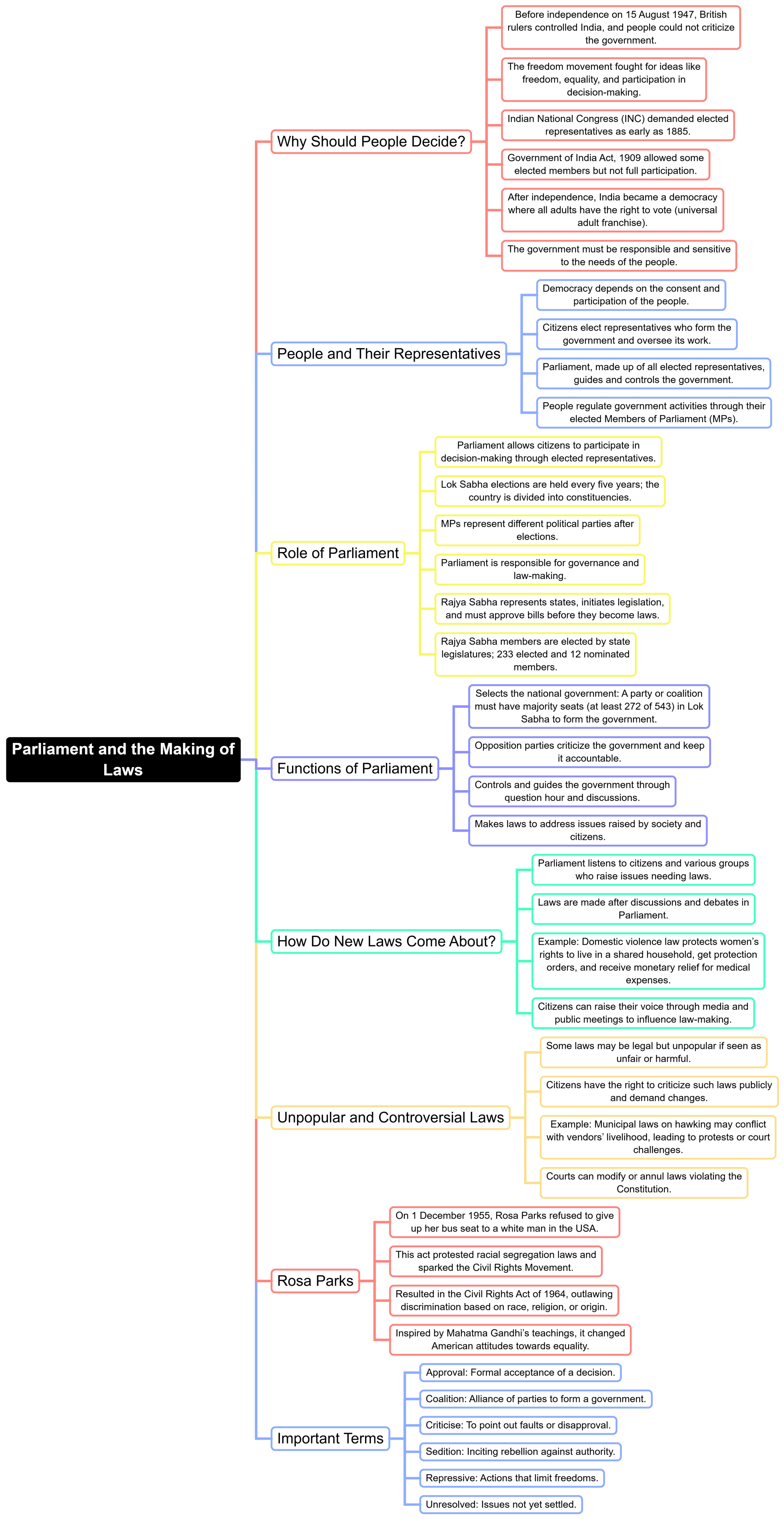Class 8 Exam > Class 8 Notes > Social Studies (SST) Class 8 > Mind Map: Parliament and the Making of Laws
Mind Map: Parliament and the Making of Laws | Social Studies (SST) Class 8 PDF Download

The document Mind Map: Parliament and the Making of Laws | Social Studies (SST) Class 8 is a part of the Class 8 Course Social Studies (SST) Class 8.
All you need of Class 8 at this link: Class 8
|
69 videos|431 docs|46 tests
|
FAQs on Mind Map: Parliament and the Making of Laws - Social Studies (SST) Class 8
| 1. What is the primary role of Parliament in a democratic system? |  |
Ans. The primary role of Parliament in a democratic system is to represent the interests of the citizens, make laws, and oversee the government. It serves as a forum for debate, where different viewpoints can be expressed, and decisions can be made on various issues affecting society. Additionally, Parliament holds the government accountable for its actions and decisions, ensuring transparency and responsibility in governance.
| 2. How does Parliament contribute to law-making? |  |
Ans. Parliament contributes to law-making through a structured process that involves several stages, including proposal, debate, amendment, and voting on bills. Members of Parliament (MPs) can introduce legislation, which is then scrutinized by committees and discussed in sessions. This collaborative approach ensures that laws are thoroughly examined and reflect the needs and values of the population.
| 3. What mechanisms does Parliament have to hold the government accountable? |  |
Ans. Parliament has several mechanisms to hold the government accountable, including question sessions, debates, and committees. MPs can question government officials about their policies and decisions, while committees can investigate specific issues in detail. Additionally, Parliament can pass votes of no confidence, which can lead to the resignation of the government if it loses the support of the majority of MPs.
| 4. Why is public participation important in the functioning of Parliament? |  |
Ans. Public participation is crucial in the functioning of Parliament as it ensures that the voices and concerns of citizens are heard and considered in the legislative process. Engaging with the public through consultations, petitions, and public hearings helps MPs understand the needs of their constituents, leading to more representative and effective governance. It also fosters a sense of ownership among citizens regarding the democratic process.
| 5. What historical significance does Parliament hold in shaping modern governance? |  |
Ans. Parliament holds historical significance in shaping modern governance as it evolved from early councils and assemblies into structured legislative bodies that embody democratic principles. Landmark events, such as the Magna Carta and the Glorious Revolution, established the foundation for parliamentary sovereignty and the rule of law. These developments have influenced democratic governance around the world, promoting ideals of representation, accountability, and the protection of individual rights.
Related Searches
















